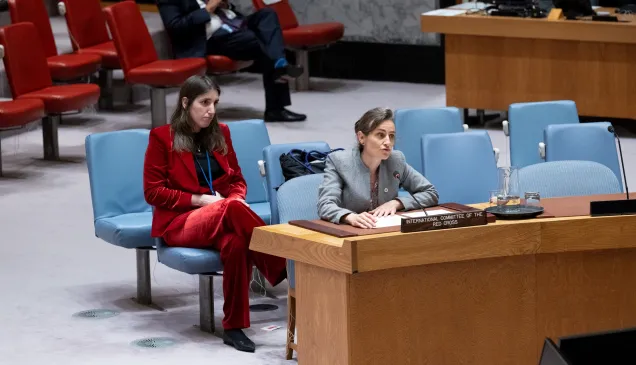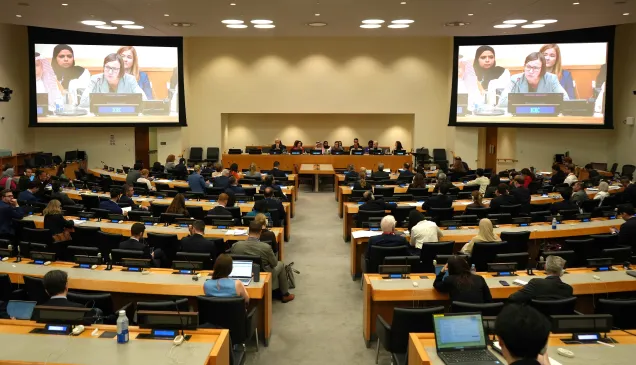Excellencies, colleagues,
Sexual violence in conflict is not an isolated occurrence. The WPS agenda has long affirmed that to end this horror, the root cause of gender inequality must be tackled too.
Sexual violence cannot be divorced from the thorns of gender bias and discrimination in our societies. They carry through to our battlefields.$
This is why a gender perspective is important throughout our instruments and decision-making processes. Inequalities at these levels impact behavior in war.
It is also why the ICRC is heartened by advancements in arms treaties and declarations in recent years.
More and more, instruments deal expressly with gender:
- The Arms Trade Treaty recognizes the connection between arms and gender-based violence,
- The Treaty on the Prohibition of Nuclear Weapons includes a commitment to assess gendered impacts,
- The Explosive Weapon in Populated Areas Declaration encourages the tracking of civilian casualty data disaggregated by sex and age,
- Actions plans on mine action address gender in victim assistance.
These advancements are key.
But more gender perspective is needed at the level of military operations, too. Sexual violence and other gendered harm is reduced when a culture of restraint and compliance with the law is promoted across armed forces' doctrine, education, training and disciplinary systems. It should be communicated in a way that is relatable and actionable across all ranks.
A gender perspective can be embedded in these operations in service of international humanitarian law's obligations regarding non-discrimination and civilian protection.
States could:
- Commit to interpreting IHL with a gender perspective,
- Integrate strong provisions addressing non-discrimination and gender in military manuals, including the prohibition of sexual violence,
- Appointing gender advisers to positions of influence in armed forces,
- Reinforce commanders' responsibilities to prevent and respond to sexual violence,
- Ensure domestic laws feature non-exhaustive definitions of sexual violence, free from gender stereotypes, with special measures of protection for victim/survivors and the criminalization of sexual violence as a war crime.
The ICRC's new report on IHL and a Gender Perspective in Military Operations gives more examples.
Finally – today's open debate focuses also on demilitarization as a step towards peace.
It is no coincidence that as the rights of women and girls decline, violence rises. Where conflict persists, equality for women and girls is eroded. Gender equality is a marker of peace and security.$
Today, gender gaps are particularly deep in the conflicts where the ICRC works.
Respect for international humanitarian law is a starting point to prevent the gender gap from widening during and after conflict subsides. It also reinforces the pathway towards peace – for all.
We ask that international security is understood to be human security, and that means security of diverse men, women, boys and girls alike.
Thank you.



